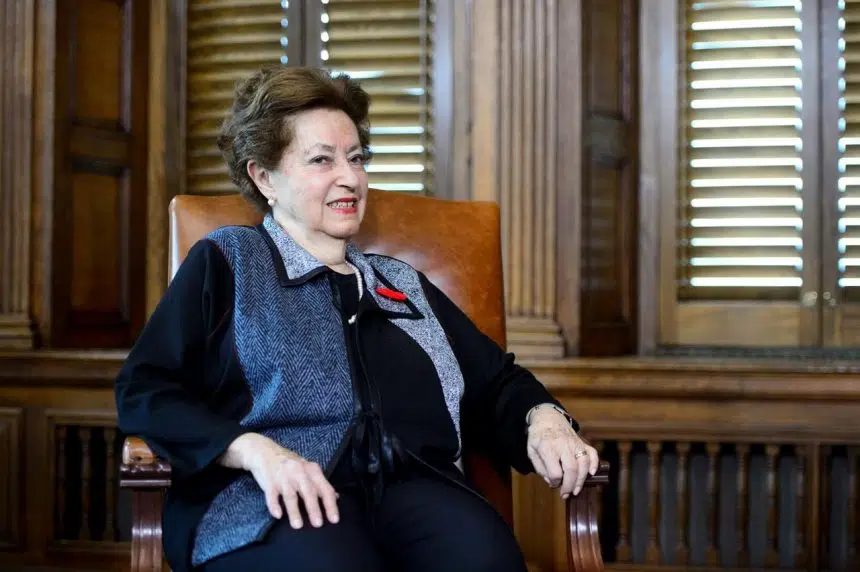OTTAWA — Judith Steel remembers holding her father’s hand, being told to look off to the right for a moment, and feeling someone else take her hand.
Her father was turning her over to an organization that was rescuing children from Rivesaltes, a military camp in southern France where Jews were sent before German forces took them east into the Reich. The next day, her father and mother would be loaded on a train, destined for the Auschwitz death camp in Poland.
“I never saw my parents again,” Steel said Wednesday morning.
They were among the 254 passengers of the MS St. Louis who would die in the Holocaust, a fate Prime Minister Justin Trudeau said could have been avoided had the Canadian government not closed its ports to the ocean liner 79 years ago.
About a half dozen survivors from the ship filled with more than 900 German Jews seeking asylum from Adolf Hitler’s Nazi regime sat in the House of Commons to hear Trudeau deliver an official apology for the decision.
“For me, these apologies are very important because in your life, you cannot go on being eaten up by the anger and the emptiness. (An) apology takes some of that heaviness away from me and I certainly appreciate that,” Steel said.
The surviving passengers who travelled from the United States to hear the prime minister’s apology were all children when they and their parents boarded the St. Louis in May 1939.
At their airport hotel in Ottawa, each recalled how their parents secured passage on the ocean liner, believing that they could find safe haven from the Nazis. Some had family who had already made the voyage to Cuba or the United States, such as Sol Messinger and Eva Wiener.
Getting a visa to enter the United States was difficult, so the first target was Cuba.
“There weren’t a lot of countries that were anxious to have Jews. In fact, it was the opposite,” said Messinger.
But Cuba denied their request even after all those on board threatened a mass suicide.
The ship sailed north.
Messinger recalled standing along the railing of the ship and seeing the lights of Miami before the coast guard turned it around. Other countries rejected their asylum requests, including Canada, although the ship never sailed close enough to Halifax for anyone on board to see it.
Eventually, four countries — France, Belgium, Netherlands and the United Kingdom — agreed to take them in. That news arrived on Messinger’s seventh birthday. Germany would later conquer three of them.
In 2012, the U.S. State Department apologized for its role in the St. Louis incident, but the survivors who attended called it a low-key affair.
Wiener said she was surprised when Trudeau reached out earlier this year to talk about the apology, adding she was impressed “that he actually took interest in the events of 1939.”
“The fact that the world was so different at that point than it is today and to finally apologize for an error made that unfortunately determined our future and the path of our lives, I’m grateful,” she said.
Jordan Press, The Canadian Press







